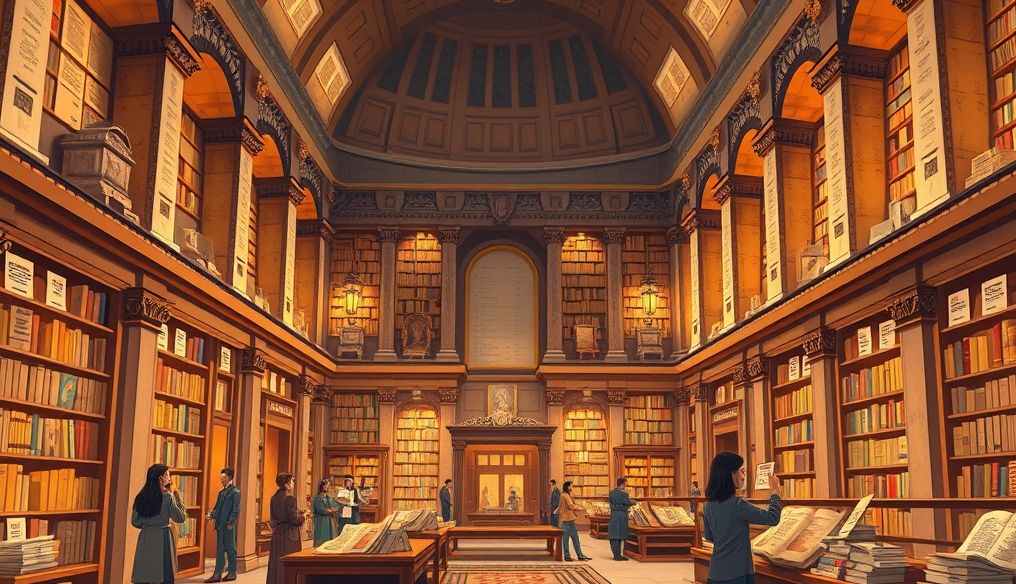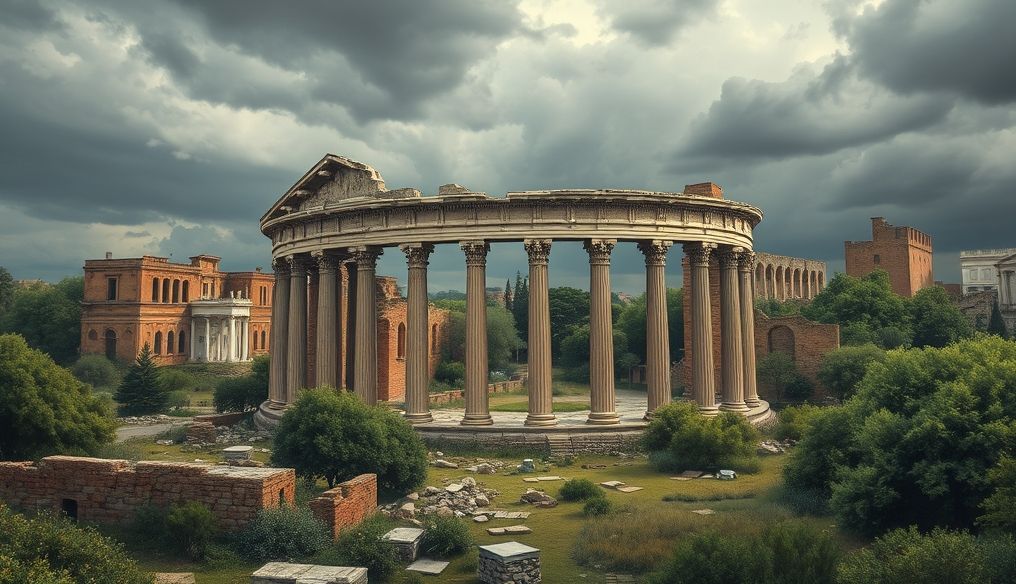Did the Library of Alexandria Really Contain All the World's Knowledge?
The ancient Library of Alexandria, founded in the 3rd century BC, is a symbol of knowledge and learning in the ancient world. It is often depicted as a repository of all human knowledge, but is this depiction accurate? Did the Library really contain "all" the world's knowledge?
A Brief History of the Library of Alexandria
The Library of Alexandria was founded by Ptolemy I Soter, one of Alexander the Great's generals, in the city of Alexandria, Egypt. The goal was to collect all the knowledge in the world and make it available to scholars and researchers. Manuscripts were collected from all over the known world at that time and translated into Greek, the dominant language of the Hellenistic world.
Size and Contents of the Library
Estimates suggest that the Library contained between 200,000 and 700,000 manuscripts, or "scrolls" of papyrus. These manuscripts covered a wide range of topics, including:
- Literature: Works of Homer, Sophocles, Euripides, and other Greek writers.
- History: Writings of Herodotus, Thucydides, and other historians.
- Philosophy: Works of Plato, Aristotle, and other philosophers.
- Science: Research by Euclid, Archimedes, and other scientists in mathematics, astronomy, and medicine.
- Geography: Maps and explorations of the known world at that time.
Did the Library Contain "All" Knowledge?
Despite its immense size and diverse contents, it is unlikely that the Library of Alexandria contained "all" the knowledge in the ancient world. There are several reasons for this:
- Limits of the Known World: The world known to the Greeks and Romans included only a small part of the globe. There was no detailed knowledge of the Americas, Australia, or large parts of Asia and Africa.
- Cultural Bias: The Library focused heavily on Greek and Hellenistic culture. Knowledge and traditions from other cultures, such as ancient Egyptian culture or Eastern cultures, may have been less represented.
- Logistical Challenges: Collecting manuscripts from all over the world was a difficult and expensive process. It may not have been possible to obtain every existing manuscript, especially those in remote areas or those considered too valuable to give up.
- Focus on Writing: The Library relied primarily on written manuscripts. Oral knowledge, such as folk tales, songs, and traditions, was not adequately represented.
What Did the Library Really Represent?
Although it may not have contained "all" knowledge, the Library of Alexandria was certainly a major center of knowledge and learning in the ancient world. It represented:
- A Center for Scientific Research: The Library attracted scholars and researchers from all over the world, who conducted research in a variety of fields.
- A Center for Translation: Many manuscripts were translated into Greek, making them available to a wider audience.
- A Center for Preservation: The Library helped preserve ancient knowledge and pass it on to later generations.
The End of the Library
The history of the destruction of the Library of Alexandria is still debated. There are several theories, including:
- The Fire Set by Julius Caesar in 48 BC: It is believed that part of the Library was destroyed during the fire set by Julius Caesar during his siege of Alexandria.
- Gradual Destruction: The Library may have gradually deteriorated due to neglect, wars, and political unrest.
- Destruction by Christians in the 4th Century AD: There are claims that Christians destroyed the Library as part of a campaign to eliminate paganism.
Regardless of the exact cause, the destruction of the Library of Alexandria represents a devastating loss of human knowledge.
The Legacy of the Library of Alexandria
Despite its destruction, the legacy of the Library of Alexandria lives on today. It reminds us of the importance of knowledge and learning, and the need to preserve and pass it on to future generations. The new Library of Alexandria, which opened in 2002, is an attempt to revive this legacy and provide a modern center for knowledge and learning.
Summary
In conclusion, although the Library of Alexandria may not have contained "all" the knowledge in the ancient world, it was a major center of knowledge and learning, and played a crucial role in preserving and transmitting ancient knowledge. It remains an enduring symbol of the importance of knowledge and learning.
Note: This article is an attempt to answer the question posed based on available information. Opinions may vary on the accuracy of this depiction.




